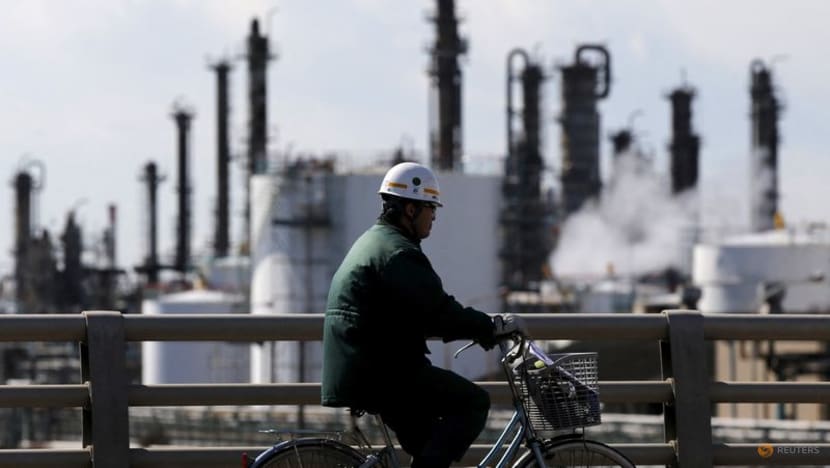Japan's economy rebounds from COVID-19 jolt, global slowdown clouds outlook

A worker cycles near a factory at the Keihin industrial zone in Kawasaki, Japan, Feb 17, 2016. (File photo: Reuters/Toru Hanai)
TOKYO: Japan's economy expanded for the third straight quarter on solid private consumption, data for April to June showed on Monday (Aug 15), a sign the country was finally staging a much-delayed recovery from a COVID-induced downturn.
But the outlook remains uncertain due to a resurgence in COVID-19 infections, slowing global growth, supply constraints and rising raw material prices that are boosting households' living costs.
Gross domestic product (GDP) in the world's third-largest economy expanded an annualised 2.2 per cent in the second quarter, accelerating from a revised 0.1 per cent increase in January to March, government data showed. It was smaller than a median market forecast for a 2.5 per cent increase.
The growth was driven largely by a 1.1 per cent rise in private consumption, which accounts for more than half of Japan's GDP, the data showed. The rise, however, was smaller than market forecasts for a 1.3 per cent increase.
Capital expenditure increased 1.4 per cent, more than a median market forecast for a 0.9 per cent expansion, the data showed.
External demand neither added nor shaved off GDP growth, compared with forecast for a 0.1 point contribution.
Japan has lagged other major economies in fully recovering from the pandemic's hit due to weak consumption, blamed in part on curbs on activity that lasted until March.
That has turned the Bank of Japan into an outlier in the global monetary tightening phase sweeping across many economies amid surging inflation.
Policymakers hope pent-up demand will underpin consumption until wages rise enough to make up for increasing living costs.
But there is uncertainty on whether companies will hike salaries amid heightening risks of slowing global demand, analysts say.









